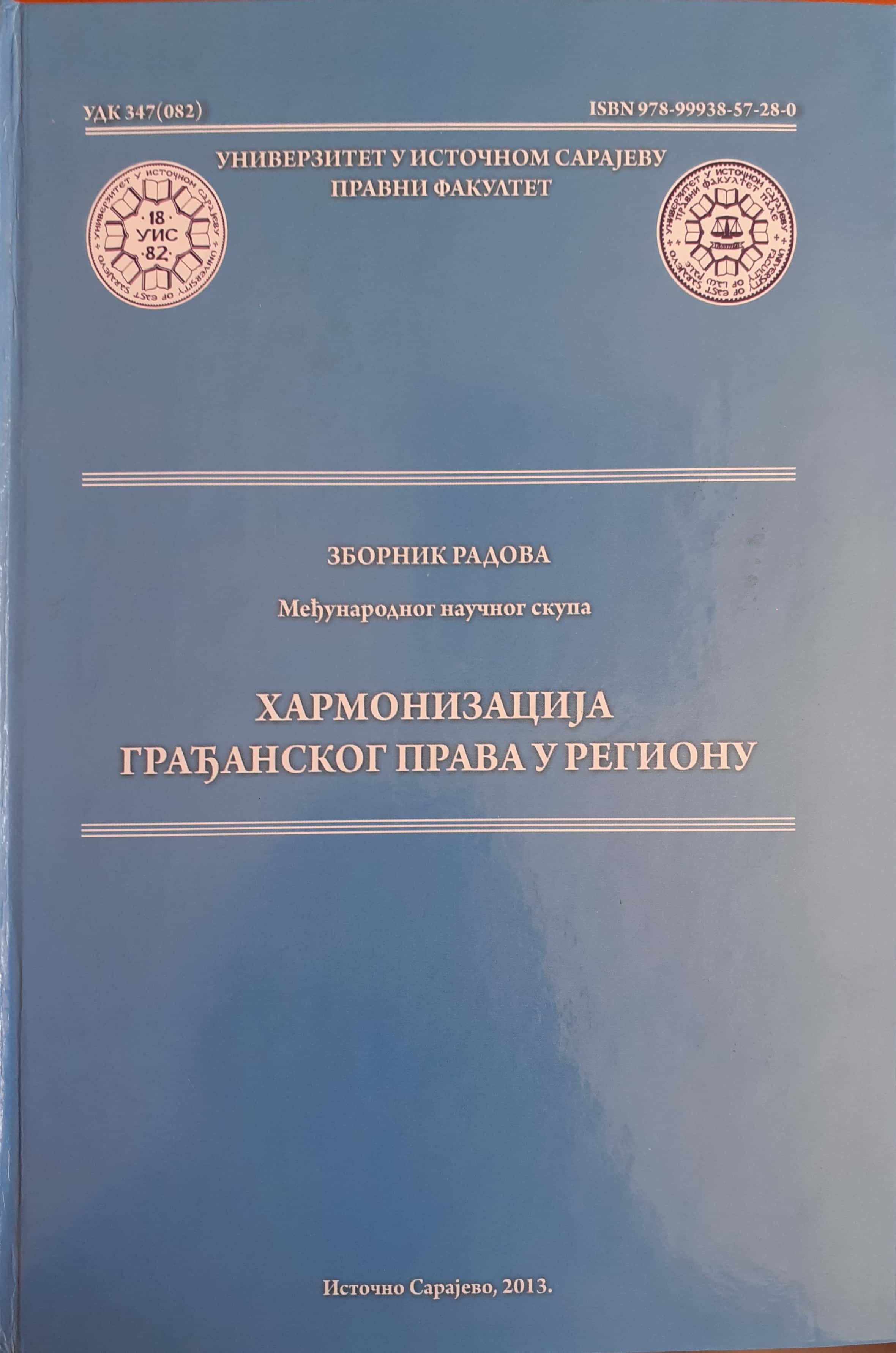Морал (етика) у грађанском праву
Ethics in Civil Law
Author(s): Oliver Antić
Subject(s): Civil Law, Ethics / Practical Philosophy, Philosophy of Law
Published by: Правни факултет Универзитета у Источном Сарајеву
Keywords: Morale;Ethics;Civil law;Private autonomy;Good faith;
Summary/Abstract: The author discusses two basic principles on which Civil Law rests – principle of private autonomy (autonomy of the will) and principle of good faith. Private autonomy, originating from the theory of autonomy of the will, stands for individualistic, hence egoistic principles in law as confirmation of subjective civil rights and as a token of position and role an individual plays in constituting, changing and cessation of subjective civil rights. The principle of good faith stands in sharp contrast to the principle of autonomy of the will in the sense of the struggle of the opposites, thus striking a balance between egoistic on one and ethic, social i.e. common or collective on the other side. Law without ethics is injust, immoral law, „law“ which can easily slip into the realm of antilaw, violence or even crime, the fact that has, sadly, been confirmed in the history of our civilization too many times. Morale, ethics without legal sanction, hence, without law is but a forsaken righteous man warning and crying, but unable to avert deceit, violence or even crime. Ethical system devoid of law resembles a senior advisor whose advice is disregarded even when properly understood. In the world of conflicting interests legal and moral order rely on fellowship, interlacing, coegzistance. Those who fail to understand ethics cannot understand the essence of law; those who fail to understand the law will certainly not understand the point, the gist, the life of ethics. Hence law and ethics must never be two separate entities.
- Page Range: 3-55
- Page Count: 53
- Publication Year: 2013
- Language: Serbian
- Content File-PDF

